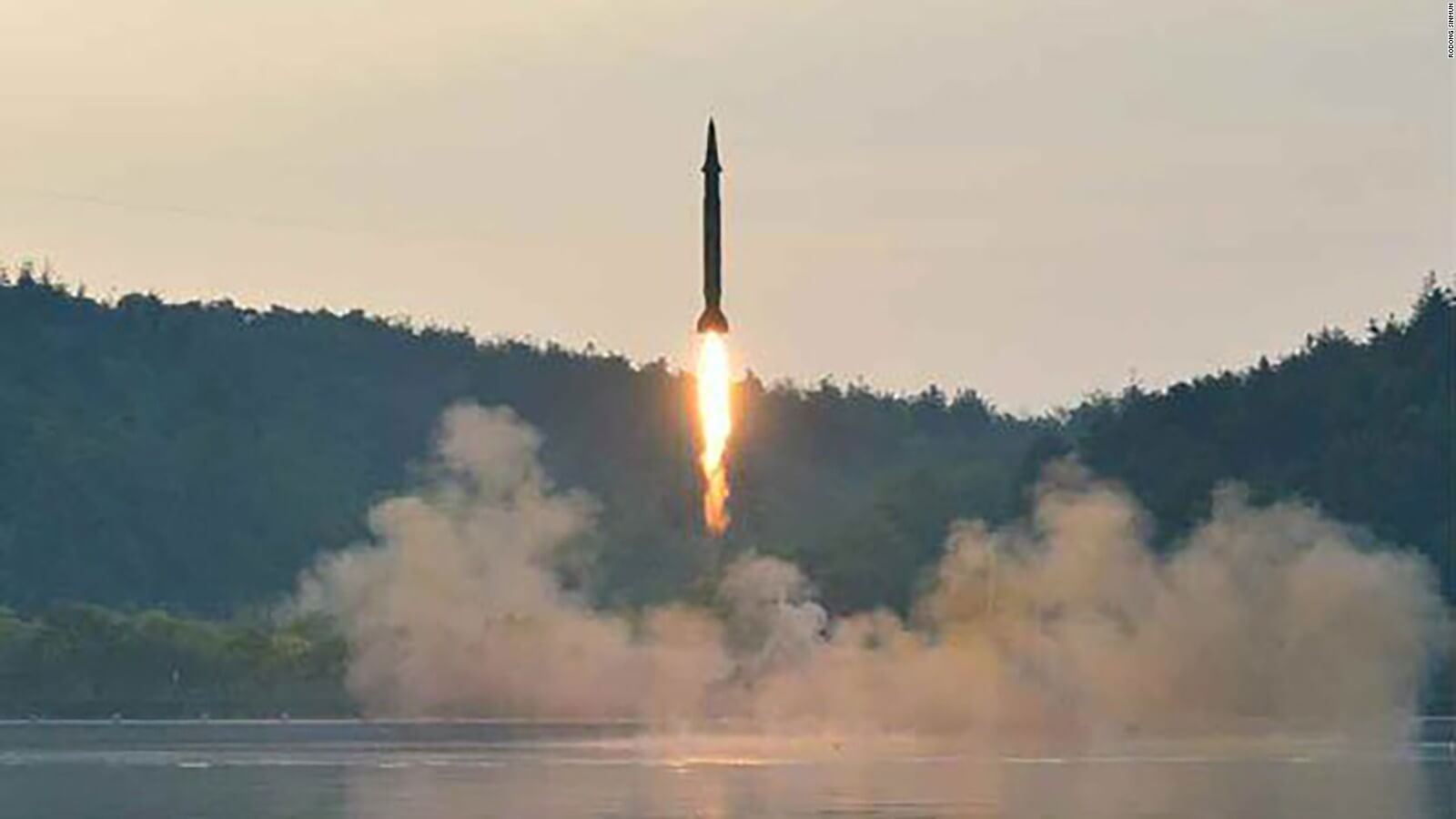North Korea tested at least one “short-range system” on the weekend, the first missile test since President Joe Biden took office. While the United States (US) has confirmed the report, it has downplayed the test as “normal military activity” by Pyongyang, on the grounds that the weapons system tested did not qualify as flouting United Nations Security Council (UNSC) sanctions.
It is believed that North Korea launched short-range projectiles, possibly artillery or cruise missiles, but not ballistic missiles, which does not qualify as a serious breach for the Biden administration. Therefore, it is unlikely that the incident will stop Washington from pursuing diplomacy with Pyongyang. Similarly, South Korea and Japan, which are in close proximity to North Korea, have also remained quiet about the test.
Two senior United States (US) administration officials, speaking on the condition of anonymity, told Reuters that the administration was monitoring the situation but declined to provide further details on the kind of missile, success rate, or the test location. “North Korea has a familiar menu of provocations when it wants to send a message to a US administration, ballistic missiles of various range, mobile- and submarine-launched platforms, nuclear and thermonuclear tests. Experts rightly recognized what took place last weekend as falling on the low-end of that spectrum,” said one of the officials. “Almost every kind of activity, missile, nuclear activity, is covered by UN Security Council resolutions, and so because this it does not, it probably gives you an indication of where it falls on the spectrum of concern...We do not believe that it is in our best interest to hype these things in circumstances in which we would consider those activities as part of a ‘normal’ set of a tense military environment like we see on the Korean peninsula,” added the second official.
The test by the hermit kingdom comes as no surprise, as Washington has been widely anticipating some action from Kim Jong-Un’s administration in an attempt to send a message about North Korea’s importance in the region to the new administration. Confirming this expectation, President Biden said “We have learned that nothing much has changed,” when asked what he had learned regarding the missile test.
Also read: The Challenges to Denuclearization and Peace on the Korean Peninsula
The administration’s reaction is in line with its policy of continuing to negotiate with North Korea. During his Senate confirmation hearing in January, Secretary of State, Antony Blinken, said that the Biden administration intends on reviewing US engagement with North Korea and would look at ways to increase pressure on the country to renegotiate its nuclear weapons programme. Blinken had also said that the US may consider providing humanitarian aid to Pyongyang if necessary. “We do want to make sure that in anything we do, we have an eye on the humanitarian side of the equation, not just on the security side of the equation,” he said.
North Korea’s defence programme has been under global scrutiny for years now and has consequently invited sanctions from many countries due to its pursuance of nuclear weapons. However, this has not stopped the country from actively pursuing its nuclear goals. The two nations’ leaders met over three summits in 2018, ushering in a wave of hope about refining their relationship. In fact, during the same period of time, in the spirit of denuclearisation negotiations, Supreme Leader Kim Jong-un even suspended nuclear and long-range missile testing. However, links between Washington and Pyongyang have rapidly deteriorated since Kim Jong-un’s talks with US President Donald Trump collapsed in 2019, with no agreement regarding denuclearisation or easing UN sanctions on the country. Since then, Kim has committed to further strengthening its nuclear arsenal and has refused to respond to back-channel conversation attempts made by the Biden administration since mid-February.

